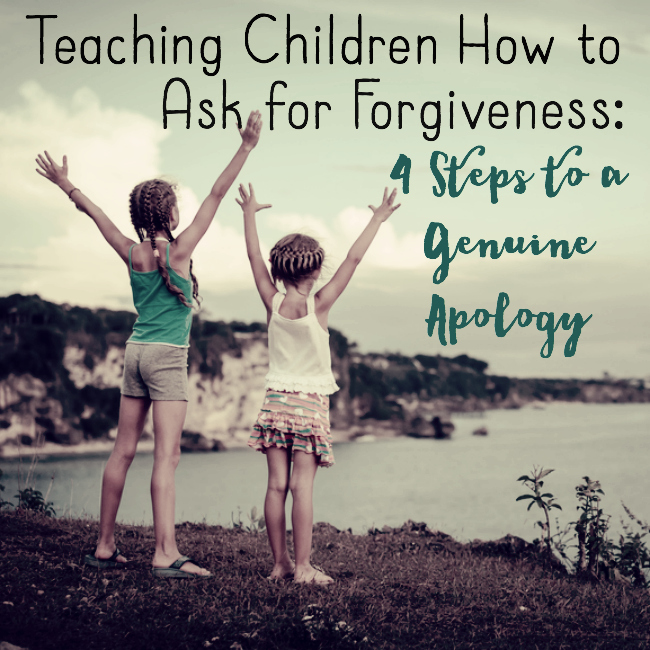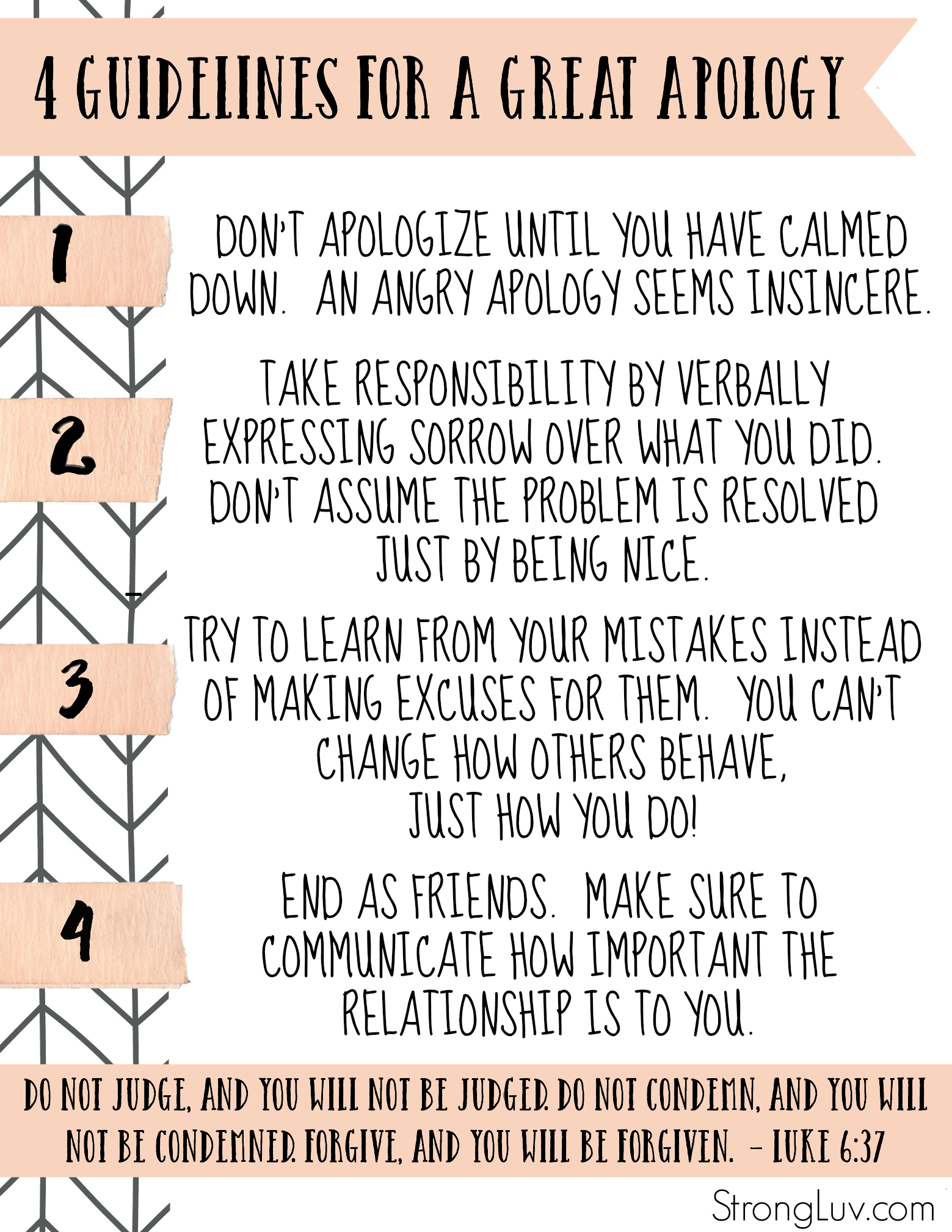Let’s not beat around the bush, teaching our children the value of taking responsibility for their actions and asking for forgiveness is tough work. Mostly because it’s something that has to be modeled more than anything else. It’s the standard “caught not taught” scenario. Unfortunately, lecturing our kids about the virtues of taking ownership of their behaviors while not doing it ourselves doesn’t work.
When our kids see us responding in humility and being quick to apologize it helps them understand that we don’t have to be perfect. Our relationships benefit when we take responsibility for our actions.
Asking for forgiveness and owning our mistakes goes against our nature in almost every way. And the same is true for our children. Sometimes it feels like they’d rather die then utter those three small words:
- “I was wrong.”
- “I’m so sorry.”
- “Please forgive me.”
- “It’s my fault.”
It’s a million times easier to find the fault in others when there’s a problem than owning up to our part of it, no matter how small that part may be. Since we want our kids to be good at relationships, and relationships often require forgiveness, we have to invite them into the unsettling work of learning how to be good at asking for and offering forgiveness.
4 Guidelines to Follow for a Great Apology:
- Don’t apologize until you’ve calmed down. An angry apology seems insincere.
- Take responsibility by verbally expressing sorrow over what you did. Don’t assume the problem is solved just by being nice — USE WORDS!
- Try to learn from your mistakes instead of making excuses for them. You can’t change how others behave, just how you do! At the end of the day, it’s not our problem if someone else chooses to be blind to their issues. What’s important is that we live in a way that fosters growth and maturity.
- End as friends. Make sure to communicate the respect you have for the person that you’ve offended and let them know how important the relationship is to you.
I made a printable for you to hang up or have on hand so you can reference when there’s an “issue”!
One thing I’m actively working on is not shaming our kids when they screw up. Shame has to be the single biggest inhibitor to feeling strong enough and free enough to apologize. I find it easy to slip into being impatient with them when they do something obviously wrong. I hate that. One way I fight against it is to apologize when I recognize myself doing it — no matter how subtle the shaming. I want them to believe to their core that they are not defined by their mistakes, but they are loved regardless of what they do.
TAKE ACTION: Can you think of anything you need to ask someone forgiveness for? If it’s age appropriate, make sure to give your children the chance to see how you take responsibility and build a bridge in a fractured relationship through forgiveness! Since we can’t shield our children from our problems and mistakes lets take advantage of every opportunity and show them how to work through them constructively!


